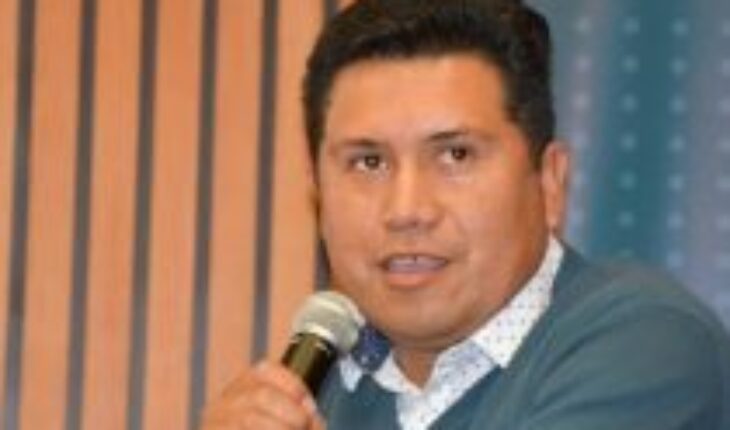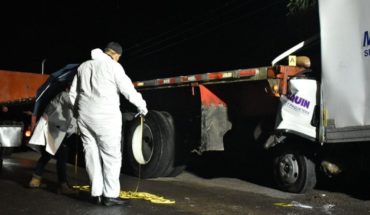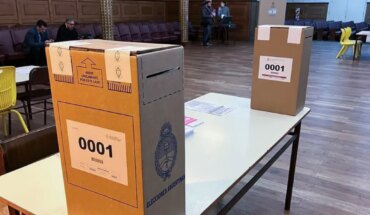“What I want to do as director is bring Conadi closer to the communities. Having these cables to lands in the different territories and having an early dialogue with the communities,” said former UFRO student leader Luis Penchuleo Morales.
Penchuleo receives the National Indigenous Development Corporation (Conadi) with a budget of almost $117 billion and the demand of more than 900 communities asking for land restitution in the “Wallmapu”.
A reality that the newly assumed director knows well: “It comes from a memory of mobilization and struggle, also of pain. His father, his family in general has been involved in the struggle for land restitution. That’s his profile,” said a close friend of Penchuleo.
Soul of leader
The 38-year-old journalist has his roots in the Mateo Ñirripil community of the Lautaro commune. He was leader of the Mapuche Student Home Pelontuwe between 2005 and 2007, at the University of La Frontera (UFRO). And part of the Student organization “Chillkatufe UFRO Mew” and Mapuche Federation of Students (Femae). In addition, he was a member of the Political Commission that developed a proposal for Indigenous Policy during the Government of Michelle Bachelet.
“For him, the political and democratic way is the solution to disputes. Their sense of struggle includes negotiation and dialogue in any circumstance. But also with clear definitions and objectives,” said a former party colleague.
Penchuleo was one of the founders of the first Mapuche Nationalist Party, Wallmapuwen (People living in the Wallmapu), but was dissolved by the Servel in 2017, for not meeting requirements, according to the entity.
This now extinct movement, which was led by Penchuleo, sought the autonomy of the Mapuche people in every way.
“Let us continue on this path, of passing from the people to the nation. Because this crisis today, whether we like it or not, has to become more acute. This will be the only way that those who are at the top and who have the upper hand, will finally give in and listen to the citizens to generate the great changes.”
Part of the speech of the former student leader in the historic raising of the Mapuche flag in the center of Temuco, in September 2011. Today it is he who has the frying pan by the handle.
“I believe that Luis’ aspiration is that Conadi can be integrated as a deliberative body in these discussions,” says a friend and colleague.
“This is not exchange for peace or production.”
“It’s their right. May we return to them the lands that the State of Chile has usurped from them. Therefore, this is not an exchange for peace, nor is it an exchange for production.” This is how clear the Minister of Social Development, Jeanette Vega, was in the framework of the presentation of the new national director of Conadi.
And, incidentally, he ruled out negotiating with communities that star in land takeovers.
According to the authority, about 300,000 hectares have been handed over, “of those, 150,000 have been declared admissible. However, I have to say that the ones that are in real process are around 926 applications. There are some that are already quite advanced in the purchase process, which is what we hope to close this year, “said the minister.
For Penchuleo the main thing “is dialogue”. And as a sign of confidence towards the communities, the director of Conadi promised to “make transparent” the list of communities and their progress in the land purchase process.
Fair price and forestry
In the midst of the discussion about the definition of “fair price,” Minister Vega clarified that land should be purchased at a “market value, without speculation.”
“Prices fluctuate from $2 million per hectare to around $5 million per hectare.” He also confirmed progress in negotiations with some forestry companies in the Mapuche conflict zone.
“They are willing to negotiate and move forward on restitution. They are also willing that the payments are not necessarily immediate, but also to land exchange. They are also willing in case the communities want to make a kind of consortium to work together, “said the head of the Social Development portfolio.
For the director of Conadi, forestry “are part of the problem and important actors for dialogue.” However, he was clear that “foresters have to go backwards in some way,” while arguing that communities must define their model of development and “they will see if forestry is part of that model.”
– What do you think? Can you live with the foresters?
In the current situation, I think it’s difficult.
Intermediate state
On the Government’s proposal for a constitutional reform to “safeguard and protect” the conflict zone in the south, through the actions of the Armed Forces, the new director of Conadi said “that sometimes contingency leads you to make decisions that are not previously defined. To the extent that the climate of insecurity is reduced, of course it will be possible to get much closer to dialogue. And the task from Conadi is that,” he said.
Follow us on





